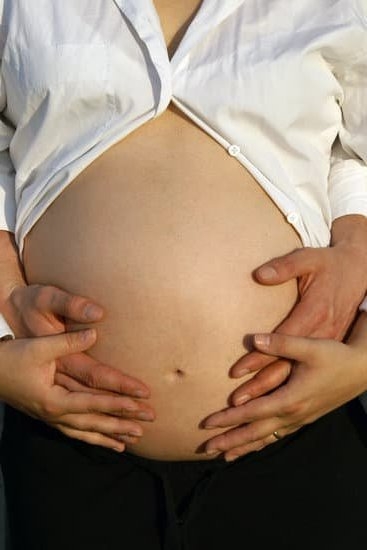Are you experiencing changes in your body and wondering if they could be an early sign of pregnancy? Understanding the early signs of pregnancy is crucial for recognizing and confirming this life-changing event. From missed periods to mood swings, the early symptoms of pregnancy can vary widely from woman to woman.
In this article, we will explore the common signs that may indicate you are pregnant. Let’s delve into the world of early pregnancy symptoms and gain a deeper understanding of what your body may be signaling to you.
One of the most well-known early signs of pregnancy is a missed period. This classic symptom often prompts women to take a pregnancy test, leading to the exciting realization that they may be expecting. However, there are many other subtle changes that your body may undergo in the first few weeks of pregnancy which we will discuss in detail.
From changes in breast size and tenderness to feelings of fatigue and nausea, these early symptoms can vary widely among women. By understanding these different indicators, you can better recognize and interpret what your body is trying to communicate to you. Join us as we explore the various ways that your body may be giving you important clues about your early stage of pregnancy.
Missed Period
A missed period is often considered one of the classic early signs of pregnancy. For many women, a missed period can be the first indication that they may be pregnant.
This occurs when the fertilized egg implants in the uterus, triggering a halt in the usual menstrual cycle. It is important to note that there are other reasons for a missed period, such as stress or changes in weight, so it is crucial to take a pregnancy test or consult with a healthcare professional to confirm pregnancy.
In addition to a missed period, some women may experience light spotting or cramping, which can be mistaken for an early period. This implantation bleeding occurs when the embryo attaches itself to the uterine lining and can occur around the time of an expected period. However, if this bleeding is significantly lighter and shorter than your typical menstrual cycle and is accompanied by other symptoms such as breast tenderness or fatigue, it can be an indicator of early pregnancy.
It’s important for women who suspect they might be pregnant to pay attention to their bodies and look out for these early signs of pregnancy. If experiencing any of these symptoms and suspecting pregnancy, taking a home pregnancy test or visiting a healthcare provider for confirmation is key. Understanding and recognizing these early signs can help individuals make informed decisions about their reproductive health.
| Early Signs of Pregnancy | Description |
|---|---|
| Missed Period | One of the most classic early symptoms signaling potential pregnancy. |
| Implantation Bleeding | Light spotting that occurs during embryo implantation. |
| Taking Home Pregnancy Tests | A crucial step in confirming potential early signs of pregnancy. |
Changes in Breast
During the early stages of pregnancy, many women experience changes in their breasts as a result of hormonal fluctuations. One common early sign of pregnancy is breast tenderness and swelling. This occurs as a result of increased levels of estrogen and progesterone, which can cause the milk ducts in the breasts to expand and the blood flow to increase, leading to a feeling of fullness and sensitivity.
In addition to tenderness and swelling, some women may also notice darkening or enlargement of the nipples, as well as the appearance of blue veins on the breasts. These changes are also attributed to hormonal shifts and increased blood flow to the area. It’s important for women who suspect they may be pregnant to pay attention to these changes in their breasts, especially if they occur alongside other early signs of pregnancy such as missed periods or nausea.
It’s worth noting that not all women will experience these specific breast changes during early pregnancy. Every woman’s body responds differently to hormonal fluctuations, so while some may notice significant changes in their breasts, others may not experience any noticeable differences until later in their pregnancy. However, being aware of potential breast changes can help women recognize early signs of pregnancy and take appropriate steps for confirming it through medical tests.
| Signs | Early Pregnancy |
|---|---|
| Breast tenderness | Common |
| Nipple darkening/enlargement | Some may notice |
| Blue veins on breasts | Possible change |
Fatigue
Feeling fatigued or constantly tired may be an early sign of pregnancy that many women experience in the first few weeks after conception. This overwhelming tiredness is often attributed to the hormonal changes happening in the body, specifically the surge in progesterone levels. It’s not uncommon for women to feel like they could sleep all day, even if they have had a full night’s rest.
The Science Behind Pregnancy Fatigue
During early pregnancy, the body is working hard to support the developing fetus. This means an increase in the production of hormones, such as progesterone, which can contribute to feelings of exhaustion and sleepiness. Additionally, lower blood sugar levels, increased blood production, and changes in metabolism can also play a role in making pregnant women feel more tired than usual.
Coping With Pregnancy Fatigue
While it may be challenging to deal with fatigue during early pregnancy, there are some strategies to help cope with this symptom. Getting plenty of rest and trying to take naps throughout the day can help combat tiredness. Eating small, frequent meals to keep blood sugar stable and staying hydrated can also make a difference. It’s important for pregnant women to be kind to themselves and listen to their bodies if they’re feeling especially drained.
When to Seek Help
While fatigue is a common early sign of pregnancy, it’s essential for women to pay attention to their bodies and seek medical advice if their fatigue becomes overwhelming or is accompanied by other concerning symptoms. Chronic fatigue or extreme exhaustion could be a sign of an underlying medical condition or complication that needs attention from a healthcare provider.
Nausea and Morning Sickness
Here are some common symptoms of nausea and morning sickness during pregnancy:
- Increased sense of smell
- Sensitivity to certain odors or foods
- Nausea that is worse in the morning but can occur at any time
- Vomiting
- Loss of appetite
It is important to note that while it is commonly referred to as “morning” sickness, it can actually occur at any time of day. For some women, the symptoms may be mild and manageable, while for others, it can be more severe and impact daily activities. While the exact cause of nausea and morning sickness is not fully understood, it is believed to be related to the hormonal changes in the body during pregnancy.
Although unpleasant, nausea and morning sickness are generally considered a normal part of a healthy pregnancy. It is crucial for expectant mothers to speak with their healthcare provider if they experience severe or persistent symptoms, as dehydration and weight loss can occur if not managed properly.
Furthermore, medical supervision is necessary if vomiting becomes excessive or leads to being unable to keep any food or liquid down. In these cases, medical intervention may be required in order to prevent complications from arising due to this early sign of pregnancy.
Changes in Appetite and Food Aversions
During the early stages of pregnancy, many women experience changes in appetite and food aversions. These can be some of the most noticeable and inconvenient symptoms of pregnancy, as they often disrupt a woman’s regular eating habits and preferences. It’s important to understand that these changes are due to hormonal fluctuations and can vary from woman to woman.
Cravings and aversions in early pregnancy are a common occurrence. Many women find themselves suddenly craving certain foods that they never had an interest in before, while also feeling repulsed by foods they once enjoyed. These sudden changes in appetite can be attributed to hormonal shifts, particularly the increase in human chorionic gonadotropin (hCG) hormone during early pregnancy.
It is not uncommon for women to crave salty or sweet foods during this time, while also experiencing aversions towards strong-flavored or greasy foods. Some even develop unusual cravings for non-food items such as dirt or clay – a condition known as pica.
Understanding and managing these changes in appetite is important for maintaining proper nutrition during pregnancy. If you find yourself suddenly unable to stomach certain foods or struggling with strong cravings, it may be an early sign of pregnancy that you should pay attention to.
Mood Swings and Emotional Changes
Hormonal Changes and Emotional Rollercoaster
During early pregnancy, women experience a surge in hormones, particularly estrogen and progesterone. These hormonal changes can have a significant impact on a woman’s mood, leading to emotional ups and downs. It is not uncommon for pregnant women to feel more sensitive, irritable, or tearful during the first trimester. This rollercoaster of emotions is often attributed to the rapid increase in hormone levels as the body adapts to supporting a growing fetus.
Coping With Mood Swings
Understanding that mood swings are a normal part of early pregnancy can help women cope with these emotional changes. It is important for expectant mothers to communicate their feelings with their partners, family members, or healthcare providers. Engaging in relaxation techniques such as deep breathing exercises, gentle yoga, or meditation can also provide some relief from heightened emotions. Moreover, ensuring adequate rest and practicing self-care can significantly impact one’s emotional well-being during this time.
Seeking Support
Pregnancy can be an overwhelming experience emotionally and physically. It is crucial for women to seek out support from their loved ones or join pregnancy support groups where they can connect with other expectant mothers who may be going through similar emotional challenges.
Seeking professional help from counselors or therapists is also an option for those who find it difficult to manage their mood swings and emotional changes. Overall, recognizing that mood swings are an early sign of pregnancy and seeking support will empower women to navigate through this exciting yet emotionally demanding journey.
Other Early Signs of Pregnancy
During the early stages of pregnancy, your body goes through a multitude of changes as it prepares to nurture and grow a new life. Aside from the classic signs such as missed periods, changes in breast, fatigue, nausea, and mood swings, there are other less recognized yet common early signs of pregnancy that many women experience. These symptoms may not be as widely talked about, but they can still be significant indicators that you might be pregnant.
Some of the lesser-known early signs of pregnancy include frequent urination, headaches, and dizziness. While these symptoms can often be attributed to other factors such as stress or dehydration, they can also point to the possibility of carrying a child. It’s essential to pay attention to your body’s signals and consider all possible explanations for these symptoms.
- Frequent Urination: If you find yourself making more trips to the restroom than usual, especially during the night, it could be an early sign of pregnancy. This is due to the increased blood flow to your kidneys and hormonal changes that result in more urine production.
- Headaches: Hormonal changes during the early stages of pregnancy can lead to headaches. This can be caused by increased blood circulation or changes in hormone levels.
- Dizziness: Feeling lightheaded or dizzy can be another indication that you’re pregnant. This is often caused by low blood pressure or sugar levels as your body adjusts to the changes brought on by pregnancy.
It’s important to note that while these symptoms can potentially indicate pregnancy when experienced together with other signs, they can also have various other causes. If you suspect you might be pregnant based on these symptoms or any others, it is advisable to take a home pregnancy test or consult with your healthcare provider for confirmation. Understanding and recognizing these early signs of pregnancy will help you respond appropriately and take care of both yourself and your developing baby.
Conclusion
In conclusion, it’s important for women to listen to their bodies and be aware of the early signs of pregnancy. Recognizing these symptoms can help individuals identify a potential pregnancy early on and seek proper medical care. The early signs discussed in this article, such as missed periods, changes in breast tissue, fatigue, nausea and morning sickness, appetite changes, mood swings, and other physical symptoms can provide valuable information for those who suspect they may be pregnant.
By being attuned to their body’s signals and changes during the earliest stages of pregnancy, individuals can take the necessary steps to ensure the health and well-being of both themselves and their growing baby. Whether it’s making lifestyle adjustments or seeking prenatal care from a healthcare provider, recognizing these early signs is crucial for a healthy pregnancy.
Ultimately, staying informed about the early signs of pregnancy empowers women with knowledge about their own bodies. It enables them to make informed decisions about their reproductive health and overall wellness. By understanding these early symptoms, individuals can better navigate the journey of pregnancy and prepare for the arrival of a new family member.

Welcome to my fertility blog. This is a space where I will be sharing my experiences as I navigate through the world of fertility treatments, as well as provide information and resources about fertility and pregnancy.





